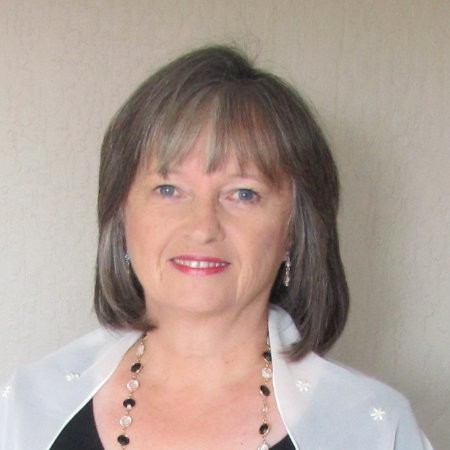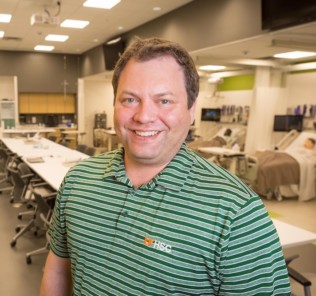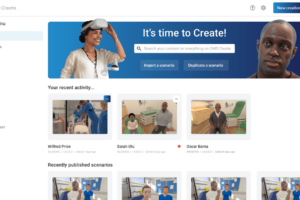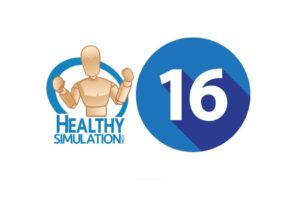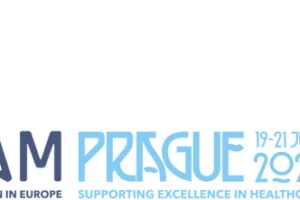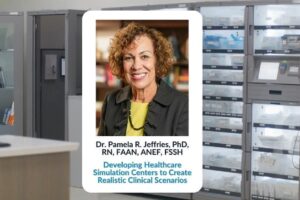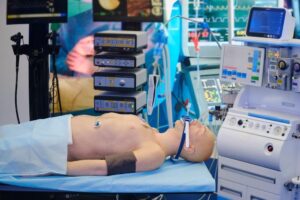Simulation Operations Program Management: Stepping Out From Behind the Mirror
Defining healthcare simulation operations within an institution or facility is integral to solidifying best practices, optimal workflows and overall learner retention. During the virtual International Meeting on Simulation in Healthcare (IMSH) 2021 conference, a presentation given by Nick Brauer and Katie Porcaro from the Center for Healthcare Improvement in Patient Simulation (CHIPS) at the University of Tennessee Health Sciences Center in Memphis touched on the importance of SimOps. In this article, author Dr. Kim Baily will share highlights from the presentation and discuss important considerations for creating an effective operations program.
Key Features of a Well-Structured Operations Program
Typically, simulation programs start by identifying which departments will use the clinical simulation space, the needs of the learners and who the stakeholders will be. This information will determine what equipment and supplies will likely be needed. At the same time, consideration should be given to the need for operations support both in terms of personnel, personnel training and funding for the operations component of the simulation program. Unfortunately, the latter determinations are not always included in initial planning and development.
Sponsored Content:
The authors suggest that selection and hiring of simulation operations specialists (“SOS,” also known as “simulation technologists”) should be focused on their skills and abilities, and not necessarily on credentials. In addition, they suggest that the diverse experiences of SOS add depth and richness to simulation programs. SimGhosts created a role analysis for SOS which consisted of three levels: foundation, intermediate and senior.
Levels were based on the ability to solve problems, to work autonomously, and to demonstrate increasing specialization and expert knowledge; which in turn, leads to the ability to integrate knowledge from other disciplines. Healthcare SOS operates within eight practice domains: audiovisual technology, education, simulation, theater and staging, healthcare, information technology, management/operations and research/evaluation. Selecting staff members with wide experience is important for the success of a simulation program.
Documentation and Daily Operations Procedures to Increase Efficiency
The CHIPS center completed 38,000 hours of training for 17,000 learners in 2020.
Duties are assigned to specific staff in an attempt to match the needs of the center with individual staff abilities and experience. Prior documented role identification is important for this matching. The presenters suggest that SOS should be offered a career trajectory with a view of retaining staff for the long-term.
Sponsored Content:
Both formal and informal training should be offered, as well as opportunities for staff specialized in one area to share their knowledge among their peers. Financial support for advanced training and certification is necessary. Daily effective operations support for simulation programs is a key component of successful simulation programs. In addition, SOS should hold memberships in national organizations such as SimGHOSTS.
Written policies and procedures are important in ensuring a safe learning environment. Examples include policies related to physical and psychological safety, confidentiality and equipment maintenance. Simulation centers should create a structured onboarding process for SOS staff. A blueprint can be created from existing national standards.
Consistent policies and procedures for onboarding will ensure that all staff receive the same thorough orientation. In addition, when staff follow existing national standards, they will also begin to build a knowledge foundation which can be used for individual national certification at a later date. The presenters suggest that assignments should be matched to individual skills. For example, an SOS who excels in videography might be assigned to create skills videos or orientation videos.
Such videos will not only enhance the learners’ experiences, but also instruct the SOS about equipment and center operations during the process. The SOS with this knowledge can then later be used as a resource for equipment use or center publicity/planning. Along with enhancing SOS skills, knowledge and attitudes, funding should be provided for SOS professional development and growth.
Communication is a key factor in the success of the CHIPS simulation program. Trello task management software is used for event/scenario development, tracking assignments and documenting conversations related to a specific project. Microsoft Teams is used for meetings. Weekly Monday team huddles provide an opportunity for team members to receive accolades for work projects completed, as well as discuss schedules. During the Monday meeting, Trello cards are reviewed, and planning for upcoming events occurs. In addition, staff can raise any concerns they may have; for example, regarding equipment issues and maintenance.
Specific department meetings may also be held. For example, the Ops Team meets bimonthly. Event planning usually involves case development including equipment requirements, dry runs, impromptu huddles and post-event evaluations, where issues are identified and teams can resolve issues. An audience participation poll of the attendees for the session revealed that 50% of participants did their own scheduling. CHIPS hired a logistician to work with educators to plan the details of space, equipment and human resources for new events.
Staff are assigned based on their experience and best fit for the event. Operations staff attend case development meetings to advise faculty on equipment and operations. The use of part-time staff such as student workers, federal work study volunteers and Standardized Patients as Proctors frees up full time for SOS staff to work on other projects.
CHIPS created a “Guide to Simulation Operations in Google Docs,” which provides detailed information relevant to SOS. Both current and new simulation staff have access to the Google Docs. An equipment inventory website is available which includes a summary of simulation and skills equipment, as well as medical devices available at the center.
Hyperlinks to more detailed manuals and operations for each piece of equipment are included. An Excel spreadsheet, which lists all available equipment as well as details of what the equipment does, provides an easy way to compare the various pieces of equipment available at the center (e.g. mannequin type, physiological mechanisms of the mannequin and the operating software). The spreadsheet is a helpful tool for faculty to use while simulation scenarios are under development.
The presenters noted that equipment maintenance is a constant challenge. The authors cite the importance of routine maintenance for equipment. Vendors often provide checklists for equipment maintenance which can be helpful. CHIPS has created a series of specific checklists for routine maintenance as well as pre- and post simulation checklists and a quarterly checklist to help maintain equipment and follow up on repairs.
The Role of Mentoring and Professional Development in an Operations Program
The CHIPS staff consider mentoring as an important component of their roles. Staff are encouraged to participate in local and national organizations. Several national organizations have mentor programs. A thoroughly-structured onboarding program is considered an important component for new hires, and provides a stepping stone for future national certification.
Porcaro, who recently joined CHIPS, found the onboarding program with quizzes very helpful. Another online communication activity, known as CHIPS Chats, was created during the pandemic. These virtual sessions provided an opportunity for staff to interact, extend professional development, build teamwork and camaraderie, and help create a well-rounded team which focuses on improving patient safety.
This presentation from CHIPS revealed that the center is a busy center which focuses not only on creating excellent educational programs, but also values their simulation operatives, encourages communication between team members and is willing to support SOS development and certification. This presentation is a great guide for other simulation programs that wish to support their simulation operatives.
Learn More About Developing a Simulation Operations Team
Dr. Kim Baily, MSN, PhD, RN, CNE has had a passion for healthcare simulation since she pulled her first sim man out of the closet and into the light in 2002. She has been a full-time educator and director of nursing and was responsible for building and implementing two nursing simulation programs at El Camino College and Pasadena City College in Southern California. Dr. Baily is a member of both INACSL and SSH. She serves as a consultant for emerging clinical simulation programs and has previously chaired Southern California Simulation Collaborative, which supports healthcare professionals working in healthcare simulation in both hospitals and academic institutions throughout Southern California. Dr. Baily has taught a variety of nursing and medical simulation-related courses in a variety of forums, such as on-site simulation in healthcare debriefing workshops and online courses. Since retiring from full time teaching, she has written over 100 healthcare simulation educational articles for HealthySimulation.com while traveling around the country via her RV out of California.
Sponsored Content:




